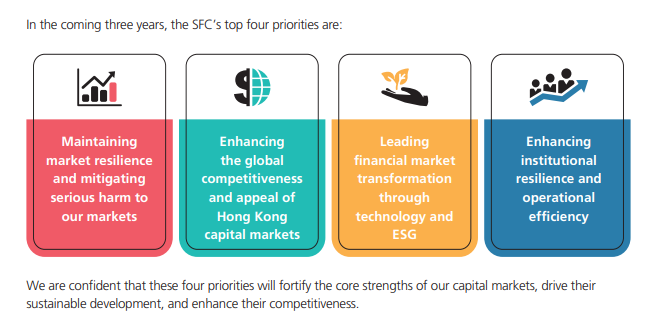Hong Kong’s financial regulator, the Securities and Futures Commission (SFC), plans to issue more licenses to crypto exchanges and digital asset companies by the end of this year. According to SFC CEO Julia Leung, the regulator aims to “make progress” in licensing 11 Virtual Asset Trading Platforms (VATPs) currently being considered. On Oct. 6, local media outlet HK01 shared this update.
Sixteen companies are still waiting for approval on their VATP applications, with eleven already operating under “deemed licensed” status despite the SFC advising against trading with them. Leung stated that the first round of on-site inspections for these crypto firms has ended. Moreover, he noted that authorities will approve the applications of VATPs meeting the licensing standards soon
SFC targets RWA Tokenization & crypto oversight
Leung’s remarks followed the release of the SFC’s 2024-2026 roadmap on Oct. 6. Specifically, the plan outlines efforts to tighten regulations on cryptocurrency platforms, push forward with tokenizing real-world assets (RWA), and explore blockchain technology. Meanwhile, Hong Kong limits retail crypto investors to just four cryptocurrencies, and the city has faced criticism for the sluggish pace of its crypto regulations despite its ambitions to become a global leader in the cryptocurrency and fintech space.

Additionally, Leung mentioned that she expects the regulatory framework for crypto assets to be in place by the end of next year. The update on crypto licenses comes just three days after HKVAX received its license as the third crypto exchange for trading in Hong Kong, joining OSL and HashKey, which received their licenses in 2020 and 2023, respectively.
Hong Kong is tightening its rules on crypto firms after a major scandal in 2023, where the Dubai-based exchange JPEX collapsed, leading to $165 million in losses. Moreover, over 2,500 residents reported that JPEX scammed them after the exchange aggressively promoted its services in Hong Kong, suddenly raising withdrawal fees and blocking users from accessing their money.
Related | WEF pushes DeFi innovation through regulatory sandboxes







